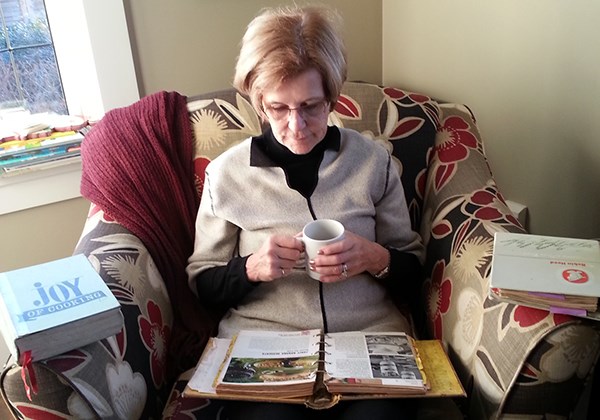History has everything to do with an excellent recipe. Have you ever sunk your teeth into something so delicious and complex that you can’t imagine how they ever got the balance of ingredients right?
A perfected recipe makes me think of stone fire pits and worn kneeling mats. Gnarled hands often worked dough, reaching for rough clay dishes of herbs and sea salt while the chatter of billions of people over millions of years moved culinary secrets forward one after another through time, mostly without the luxury of pen and paper (or the right to be taught how to use them). Aunts, sisters, mothers, daughters, nieces, grandmothers and friends made the best of socially indoctrinated domestic rhythms in caves, under thatched roofs or in stone palaces.
I picture mistakes – milk left too long in proximity to a certain mould turning to cheese, a dying fire’s smoke billowing over fish or meat for a new flavour – the chemistry of kitchen chaos. It makes me grit my teeth when people say they can’t cook, or that they always ruin their meals – sure, if you don’t like to cook then don’t cook, but if you want to be good and don’t think you can, simply keep remaking the recipes you ruin, taking note of what went wrong. It’s easy enough to turn a disaster into dinner.
It may sound morbid, but some of the most important items to be passed to me when the time comes are my mom’s cookbooks. They’re splattered and stiff, jotted in, water rippled, taped together and filled with our family’s regular recipes for each season and occasion. Christmas Hungarian bubble ring, Maritime chowders, homemade playdough, enormous casseroles and desserts that feed 100 for the epic holiday parties they have hosted over the years, all with notes from my mom (and occasionally my grandmother, if the book is a hand-me-down) on who of her four kids liked or disliked it, what she used as substitutions when she didn’t have all the ingredients, and whatever variations she made on a whim. If I could wallpaper a room with these pages, I would (hmm, I bet I could).
Instead, I’ve started the same approach to my own limited supply of cookbooks. I think of them as journals, not meant to be perfectly preserved and not worse for wear when tear-splattered from a bad day or a big onion (anyone else find that cutting onions after a horrible day is somewhat cathartic?). I encourage any cook, wannabe chef or interested kitchen sprite to do the same – take notes, share ideas, make use of your disasters. It may take years but you’ll build something worth passing on, a snapshot of your daily goings-on, who you are through what you liked. Memories of the mouth.




